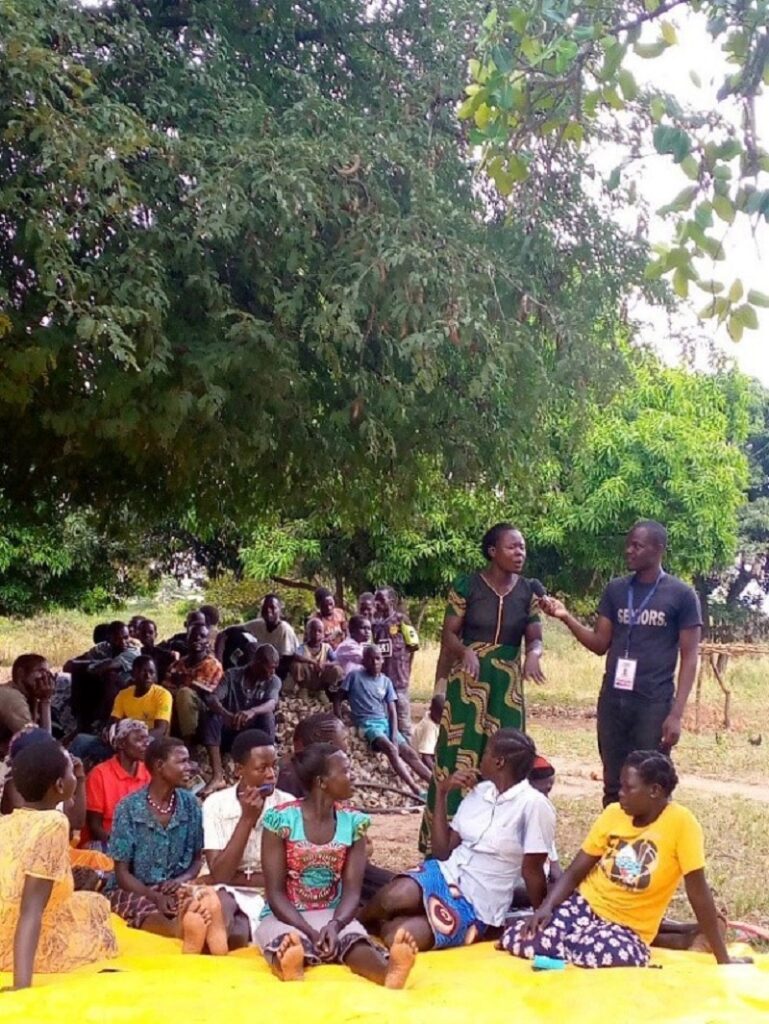Engaged Anthropology Grant: Lara Rosenoff Gauvin
Talking About Land in Acoli: Ngom Pito Dano (The Land Grows People)
From December 2021 through January 2022, we produced 5 radio broadcasts in collaboration with Radio Mighty Fire FM in Kitgum, Northern Uganda. The radio broadcasts consisted of four in-community debates (kabake) recorded onsite at Pagen, Pabwoc, Oyuru, and Pajule, and one panel discussion recorded at Radio Mighty Fire FM station in Kitgum town. Callers then had an opportunity to phone in to contribute their own perspectives.
Due to ongoing COVID restrictions at my home university in Winnipeg, Canada, I could not travel internationally and therefore could not be present. Augustine Nyero Caesar, a long-time research collaborator, did a fantastic job and coordinated and carried out all aspects of this work on the ground. We have been working together in Northern Uganda since 2006 and have collaborated on documentary photo projects, youth-created cultural revival programs, a community publication, as well as accompanying research throughout on questions about social repair, Indigenous knowledge and living through violence and displacement, and land rights.
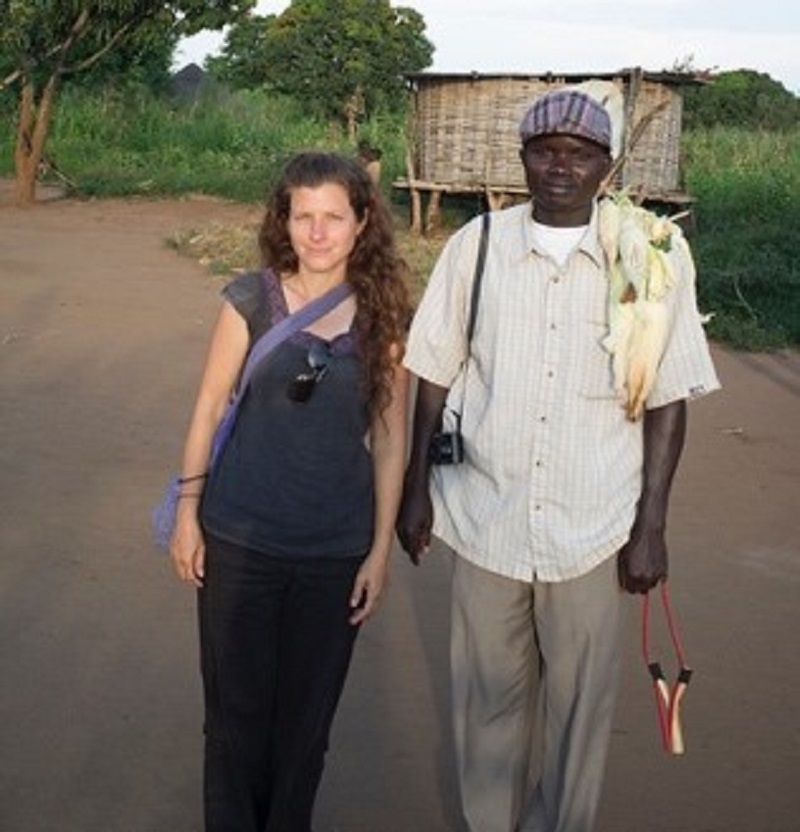
The subject of these debates and broadcasts tackled the translation of Indigenous Acoli governance constitutions (clan, sub-clan and chiefdom) from an oral intangible form into written text.
These questions came from a Wenner-Gren Post-PhD Research Grant carried out in 2018 that surveyed all 56 Chiefdoms in Acoliland. Building on my PhD research with one clan in Eastern Acoli, the research found that over 85% of Chiefdoms in Acoliland had seen the writing of Indigenous governance constitutions, at either the Clan, Sub-Clan or Chiefdom levels, since the end of the war between the Ugandan Government and the Lord’s Resistance Army (1986-2006). In 2018, we found that the writing down of Indigenous Acoli clan constitutions was provoked by the necessity of roco wat (restoring relations) after two decades of war and displacement as people returned to their ancestral lands. This revival and renegotiation of clan and chiefdom-based Acoli Indigenous governance and law was also heavily connected to the protection of communal, customary land. Both the protection of land, and issues of Acoli Indigenous law and governance–of bringing people together–were paramount at that time.
The radio events and broadcasts both shared how widespread the writing of indigenous constitutions actually is, and engaged individuals, clans and chiefdoms further to reflect, personally and communally, on what this means, why this was done, and if written Acoli Indigenous constitutions are indeed of continuing importance and value
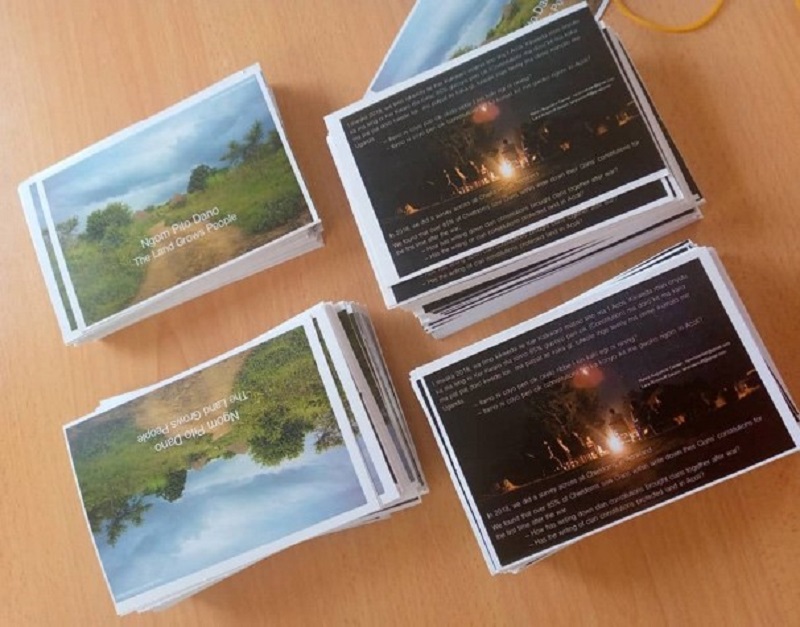
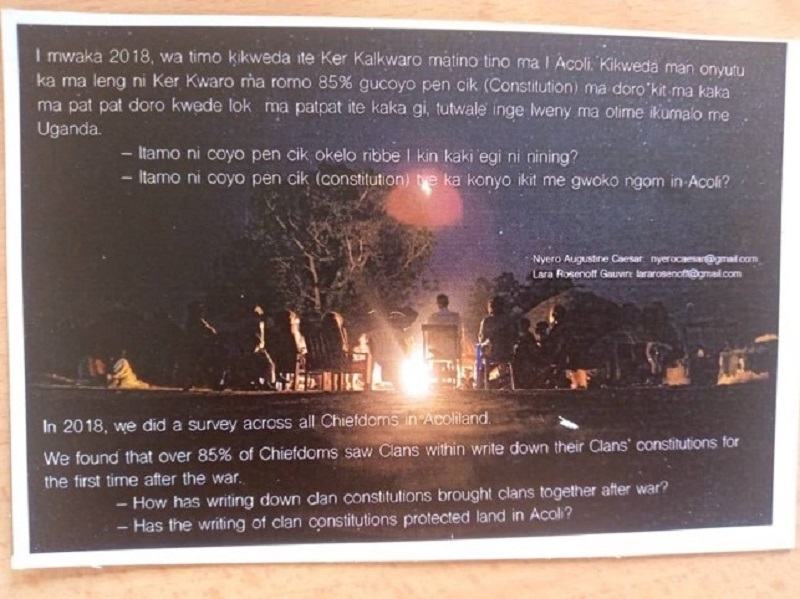
While “debate” was built into these broadcasts, most people discussed their support of writing and adopting clan constitutions. Much of the conversation was around marriage and inheritance, law and order, widow and divorcee’s rights (and women’s rights in general), and land rights, and the ways that Acoli Indigenous constitutions can, and indeed should, regulate and secure these important aspects of life. There were also conversations about how clan constitutions are necessary to protect the land for future generations as: i) many desperately want and need to sell off their “share” of communal land to finance education, health costs, business investments, and ii) many outsiders are wanting to settle and are offering to buy land from individuals who could really use the funds. Regulation of land tenure, as was also identified in 2018, continues to be of vital importance in these conversations. However, the repeatedly identified need to have the “clan” act as a safety net (and to specify in which ways), especially in light of widespread financial pressures and zero national government support, and tempting offers to subdivide and sell land to meet these pressures, is a new insight that has come to the fore. Further explorations concerning how to preserve land rights and customary tenure while addressing complex and competing rights’ issues (such as widows’ rights) were also expressed.
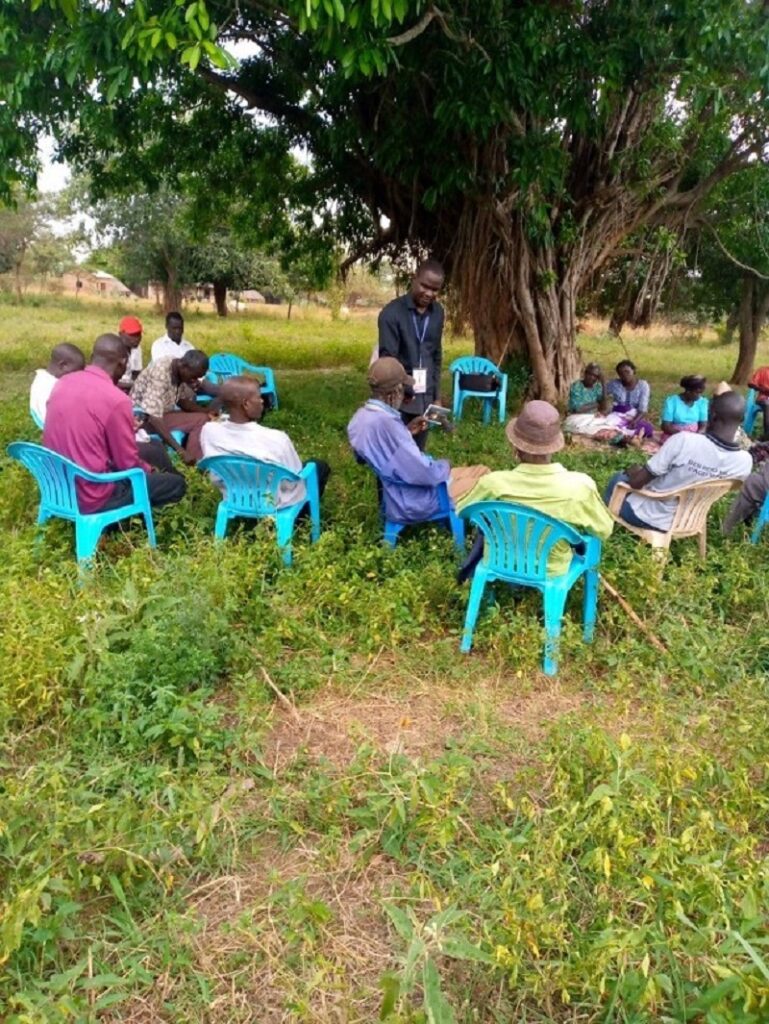
We were also asked to hold more dialogues and debates on this topic to engage ever larger groups of people in open dialogue about the dire financial and land pressures, and the role of clan constitutions, or Indigenous governance and law, within. Many noted that it is precisely these kinds of open dialogues and debates that are important in bringing attention and engagement, and even legitimacy, to sometimes weakened Indigenous governance and legal structures.
